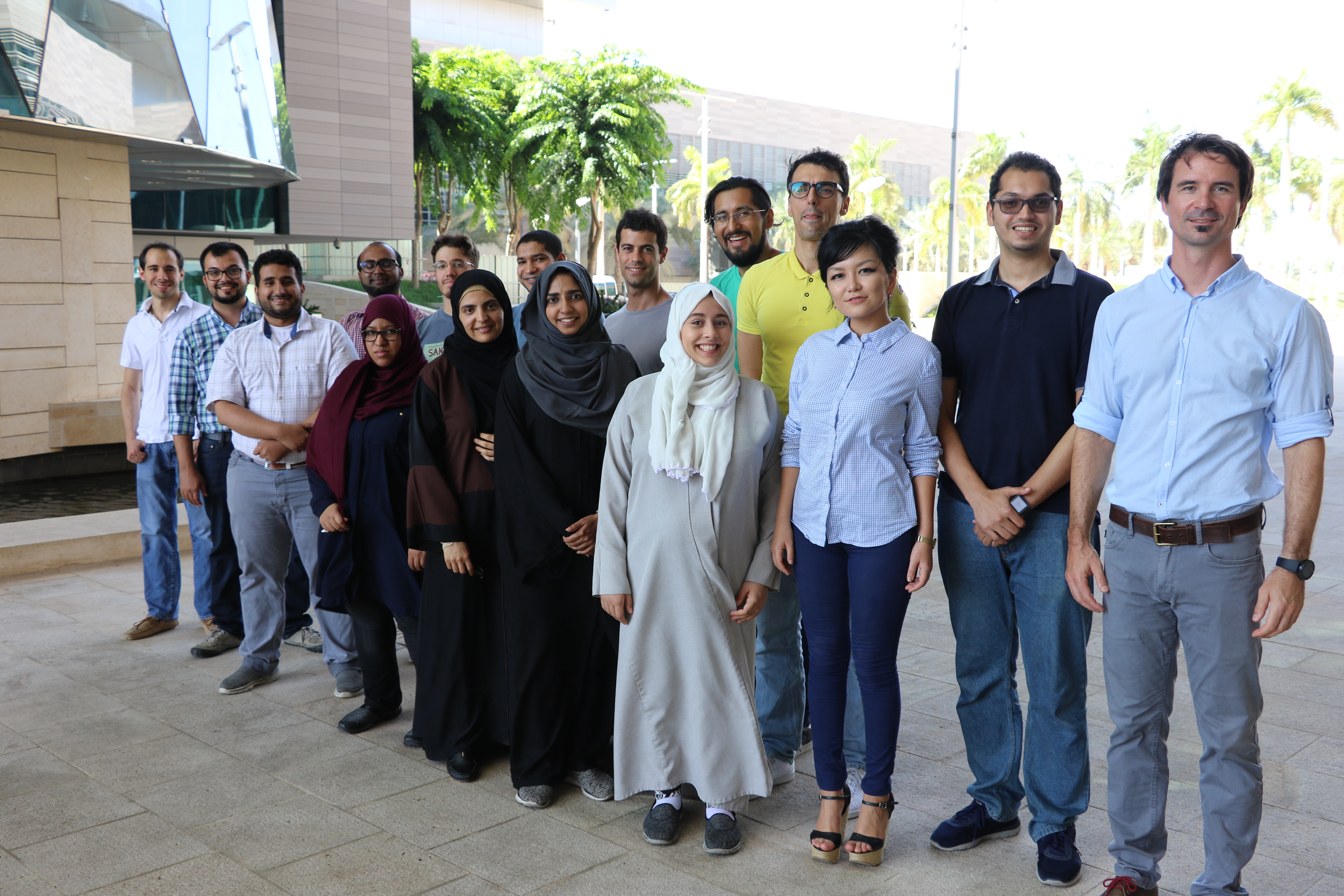KAUST students win top honors at ICM 2018

KAUST Ph.D. students Abdullah S. Almansouri and Hanan Mohammed, who are supervised by Associate Professor Jürgen Kosel in the Sensing, Magnetism and Microsystems (SMM) research group, won awards at the the 21st International Conference on Magnetism in July. File photo.
-By David Murphy, KAUST News
KAUST Ph.D. students Abdullah S. Almansouri and Hanan Mohammed recently won top honors at the 21st International Conference on Magnetism (ICM 2018), which took place in San Francisco, U.S., from July 15 to 20. Almansouri won the Best Poster Award, while Mohammed won the People's Choice Award in the Magnetism as Art Showcase. The ICM is an international conference series attracting more than 2,000 global attendees, and it continues with a series of meetings that are held every three years around the world.
Both students—who are working under the supervision of Associate Professor Jürgen Kosel in the Sensing, Magnetism and Microsystems (SMM) research group—were extremely proud to win such prestigious awards at an event featuring some of the top global magnetism researchers.
"The ICM is a major conference in the field of magnetism. Winning the best poster award at such a significant conference reveals the importance of our work and its potential of helping the humanity," Almansouri said. "Such a prize motivates the team to work harder until we realize a complete and functional product," he added.
Assisting catheter detection
Almansouri's winning poster entitled "Magnetic Tracking of Cardiac Catheters Using Flexible Magnetic Tunnel Junction Sensors" focused on the SMM's work—and work with collaborative teams from within and outside the University—in developing a flexible three-axis magnetoresistive sensor.
The magnetoresistive sensor is attached to the tip of a traditional catheter to detect the orientation of the catheter once it enters the patient's heart. In its final state, the smart catheter will eliminate current limitations in the conventional catheterization process, such as extended exposure to X-rays and the injection contrast agents that are harmful to the kidneys.
"Our magnetoresistive sensor can maintain its optimal performance even when under high bending curvature (i.e., 0.5 millimeter). Furthermore, the measurement results show that the proposed device can withstand more than 1,000 cycles of bending and straightening again while still maintaining its performance," Almansouri said.
KAUST Ph.D. student Hanan Mohammed received the People's Choice Award in the Magnetism as Art Showcase at the 21st International Conference on Magnetism for her artwork entitled 'Autumn in my Nanoworld.' Image courtesy of Hanan Mohammed.
"I am very proud of the students, and I would like to thank all members of my research group and collaborators who contributed to this work. The goals I help my students to accomplish are to continue to innovate and evolve as researchers and develop the skills needed to become future leaders," he emphasized.
Related stories:
-
Saudi students win medals at IChO 2018
-
Ph.D. student Maha Alamoudi awarded ICSM Prize
- Dr. Youssef Belmabkhout honored by ASRT
-
Alumnus receives Marie Skłodowska-Curie Fellowship

